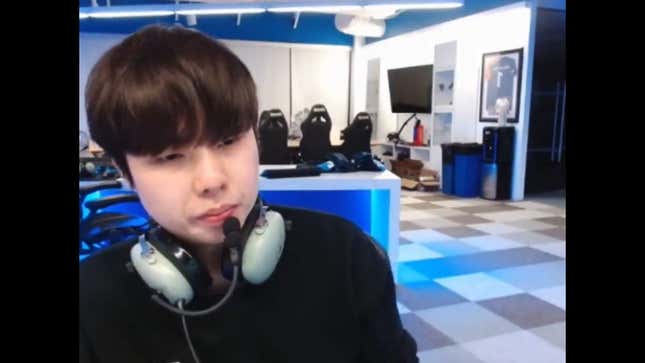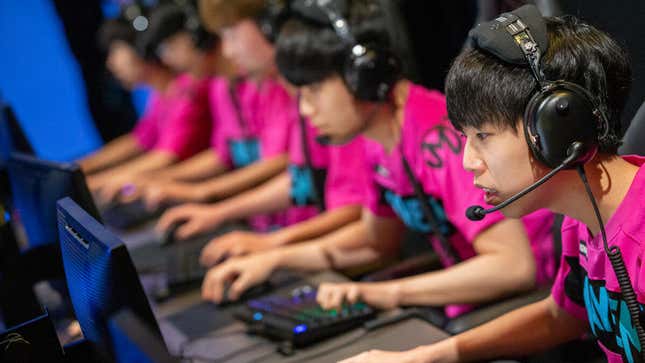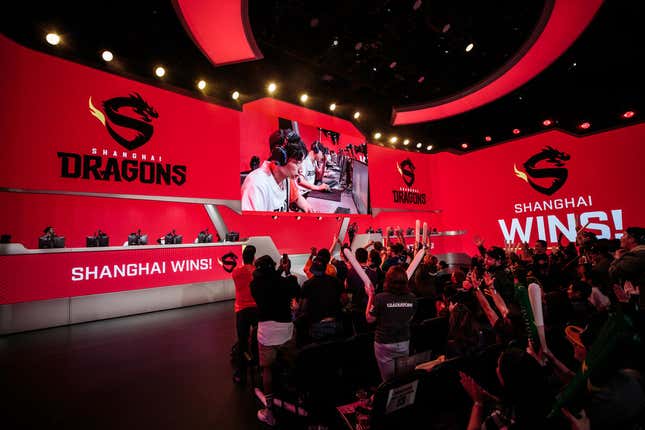
As opening day for the fourth season of the Overwatch League looms, Korean players on North American teams are dealing with the precipitous rise in anti-Asian racism. On April 5, Eui-Seok “Fearless” Lee, main tank for the Dallas Fuel, talked about his experience being Korean and living in America on his Twitch channel.
“Being Asian here is terrifying, seriously,” he said.
Lee recounted a story of people deliberately coughing on him and his teammates and cautioned other Koreans living in America because “the racism is no joke.” Here is the full clip translated into English by Florida Mayhem team manager Jade “swingchip” Kim.
Lee’s clip comes as hate crimes against Asian-Americans reach an unprecedented frequency. All over the country Asian people report being verbally and physically assaulted; the spike in violence included a gunman in Atlanta killing eight people, six of whom were of Asian descent. The attacks are attributed in part to racist rhetoric espoused by former President Donald Trump, who repeatedly blamed China for the covid-19 pandemic.
Lee’s two-minute clip sparked a wave of Overwatch League fans and professionals expressing support for the player, sharing the tweet with the hashtag #stopasianhate. The next day, on April 6, Mike “hastr0” Rufail—the co-founder of Team Envy, which is the Dallas Fuel’s parent organization—put out his own short video on Twitter condemning racism.
“We’re doing everything we can to make our players feel comfortable,” he said.
With the covid-19 pandemic disrupting international travel and Blizzard’s plans to hold live games, teams with predominantly Asian players and staff, like the Shanghai Dragons, the Seoul Dynasty, and the New York Excelsior, competed online out of China or Korea. However, a fair number of North American teams have players who are from Asian countries, and who are required to reside in the United States to compete in the 2021 season. Kotaku reached out to these teams for comment as to whether their players have had experiences similar to Lee’s, and to ask how the teams are protecting both staff and players in light of these events.

“There’s been isolated incidents in the past that we’ve dealt with, but nothing recent that I’m aware of,” Albert Yeh, general manager of the Florida Mayhem, told Kotaku over Discord. Yeh said that covid precautions mean the players typically only spend time at their apartments or practice facilities, insulating them from most potential incidents.
“In a way, the pandemic protocols have been the ‘protection’ for us,” Yeh said.
Chris Loranger, president of gaming for the Boston Uprising, said that none of his players experienced any racist incidents living in the U.S. thus far, and that they have been instructed to let management know if something does happen.
The Washington Justice and Atlanta Reign expressed similar sentiments. A spokesperson for the Atlanta Reign wrote in an email, “There have not been issues brought forth, but we’ve encouraged staff and team members to bring any and all concerns forward, and we will support them to the best of our ability.”
For its part, the Overwatch League has not put out any official statement regarding the rise in anti-Asian attacks but said to Kotaku in an email, “At Activision Blizzard, we condemn racism in the strongest possible terms. We stand with the Asian community, our employees, and our players and are working across our organization, including esports, to do our part to combat hate and ignorance.”

Statements are great, but they can only go so far. We hope that Asian players and staff feel that they can take their organizations at their words, and turn to them for any help they may need. Ever since the League began in 2018, there have been discussions as to whether or not the North American teams take the concerns of their Korean players seriously. In 2020, the Vancouver Titans came under fire after abruptly releasing their entire roster of Korean players, all of them seasoned champions, amid rumours of team mismanagement.
So what can teams do to protect their players and staff? Let them unionize for starters. As for what orgs can do to assist in this climate of increasing anti-Asian violence, Mike Rufail of Team Envy shared some actionable steps his organization has undertaken. In a statement to Vice, Rufail said that Team Envy employs a mental health coach to assist players and that they’re working “to increase security measures for players” but declined to elaborate on what those security measures might be. In any case, I hope other teams take the threat of racism-fueled violence against their players seriously enough to take precautions themselves.